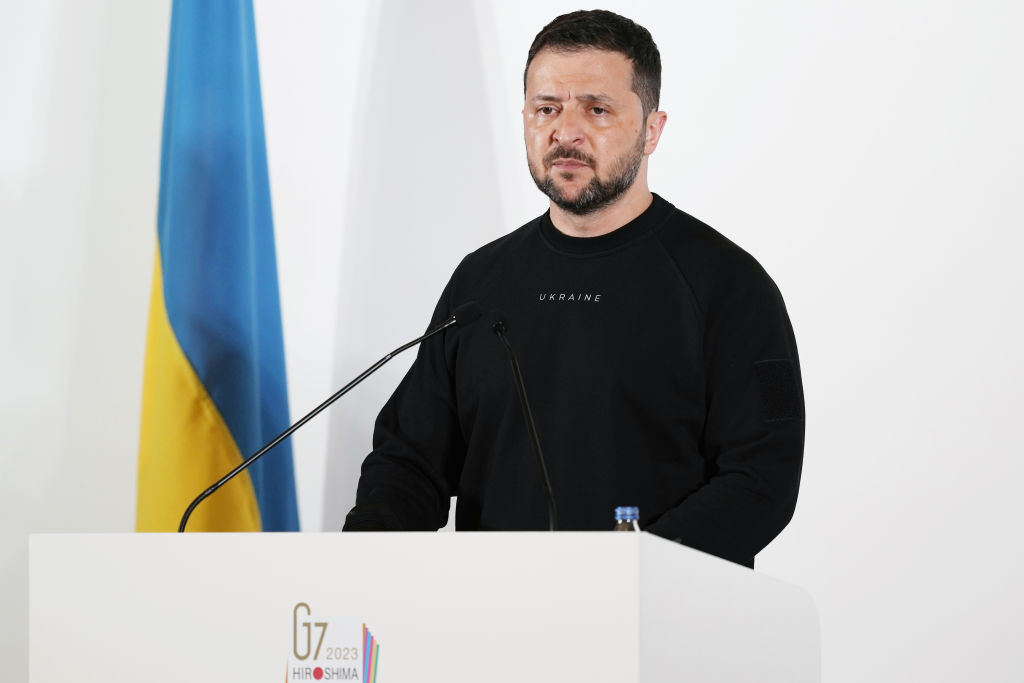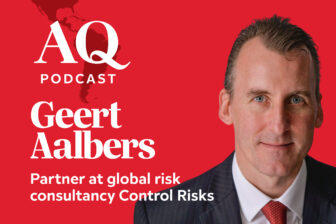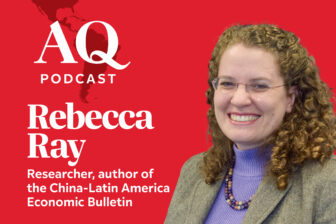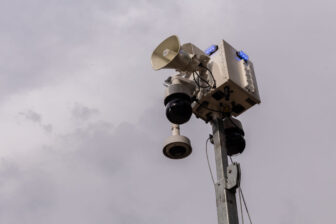BUENOS AIRES – Perspective counts. Over the past 16 months, the war in Ukraine has been felt, perceived, and analyzed around the world according to different memories and histories. Sadly, the viewpoints of the Global South, and particularly Latin America, continue to be distorted and mistakenly dismissed as pro-Russian by many in the United States and Europe. This is a lost opportunity, because the region’s unique perspectives could still help end the war before it escalates further out of control.
What could Latin America bring to the table on this issue? The region undoubtedly has many shortcomings, including the world’s highest rates of inequality and violent crime. Nevertheless, one of Latin America’s main successes over the last 200 years is its relative peace when it comes to the number of interstate wars. Indeed, one must go back almost a century or more to find the last true large-scale conflicts, such as the War of the Triple Alliance (1864-70) involving Paraguay, Brazil, Uruguay and Argentina, or the Chaco War (1932-35) between Bolivia and Paraguay.
Perhaps contrary to popular belief, this relative peace does not result from an absence of interstate tensions. Consider for example the periodic tensions over the past two decades between Venezuela’s chavista leadership and conservative governments in Colombia, which at several points resulted in heated rhetoric, a halt to cross-border trade and even, in 2008, a brief buildup of troops at the border and talk of mobilizing fighter jets. Going back a bit further, Argentina and Chile came close to a border war in 1978; a brief border conflict in 1995 between Peru and Ecuador killed nearly 100 people before a regional mediation effort put a definitive stop to the fighting. Indeed, the fact these disputes did not spill over into broader war speaks to several valuable mechanisms Latin America has developed over the course of many years.
Among them: Latin American countries have long worked to create bilateral diplomatic modes for de-escalating tensions; progressive advancement of and compliance with confidence-building mechanisms; regional dialogue as a means of preventing uncontrolled frictions; acceptance of third-party mediation; and resort to international arbitration. (Note that most of these alternatives were never seriously attempted prior to and during the war in Ukraine.) In addition, Latin America has been asserting for years its singular condition as a zone of peace; it established the first area free of nuclear weapons, and the two most advanced countries in terms of nuclear capacity—Argentina and Brazil—have the only recognized system of verification of mutual commitment to a peaceful use of nuclear energy as part of an agreement signed with the International Atomic Energy Agency.
Consequently, when earlier this year President Luiz Inácio Lula da Silva of Brazil called for peace in Ukraine he was not only expressing his concern over the evolution of the war, but also representing the peaceful credentials of the entire region. Latin America, after years of stagnant growth since the mid-2010s, the devastating socio-economic effect of COVID-19, and the dramatic recessionary outcomes of the war in Ukraine, cannot opt for passivity: It has an imperative to convey the urgency for global calm. At this stage, the world does not need a broader “coalition of the willing” to exacerbate the war, but a “coalition of the non-aggressive” to further the cause of peace. The specter of a nuclear hecatomb is increasing, and silencing the options to a negotiated settlement is not only counterproductive for the whole international community—but dangerous.
Russia, Ukraine, and the West know perfectly well that protracted wars always degrade if there is no diplomatic solution. The belief that we are just living a “limited war”—a la the 18th century—is an illusion: We are in the midst of the most consequential power shift in centuries with multiple hotspots and a growing rivalry between the two major representatives of the East and West, China and the United States. The idea that in Ukraine each party is acting defensively is not evident for the Global South: Moreover, outside the warring contenders there is a sense that escalation is the real strategy of both Russia and the West. Rhetoric aside, very few in the Global South assume that we are witnessing a Herculean struggle between democracy and autocracy, that the core Western countries have historically abided by a rule-based order, and that sanctions are the effective incentive for stopping the war.
Latin America, just as the rest of the Global South, has persistently defended territorial integrity and state sovereignty while rejecting the illegal use of force. An unbiased analysis of most Latin American countries’ recent voting record in the UN Security Council and its General Assembly shows exactly that. Similarly, Latin America’s lack of support for sanctions against Russia, or for the provision of arms for Ukraine, isn’t novel, nor is it part of a pro-Moscow position. Rather, the region has seen firsthand the ineffectiveness of sanctions throughout six decades of blockade on Cuba, while the level of military expenditure of Latin America has been declining in real terms since the 1960s, and the spending among South American nations fell significantly in the last decade. It is important to recall that only 26% of the members of the United Nations participate in the sanctions regime and the military backing of Ukraine.
In addition, in Latin America the memory of another crucial moment in recent history with the possibility of using nuclear armament is still present. The Cuban Missile Crisis of 1962 generated a massive and lasting concern in the region. If then-General Curtis LeMay’s advice to launch a first nuclear strike had been implemented, Latin America could have been the laboratory of a nuclear war between the United States and the Soviet Union.
In conclusion, Latin America’s experience in matters of war and peace is important, and deserves to be taken into account. Europe and the United States should understand that they cannot shape the world system as they had the opportunity to do at the end of the Cold War and that we have been living (and will continue to live) in a post-Western world. A more plural, multidimensional, and complex order is emerging: In that context, the voice and experience of regions including Latin America should be welcomed instead of overlooked. The menu of Latin American practiced options, among them different discrete modes of de-escalation, quiet diplomacy among the two key participants—Moscow and Washington—, and regional backing, can and should be explored.
—
Tokatlian is provost at the Torcuato Di Tella University in Buenos Aires and holds a Ph.D. in international relations from The Johns Hopkins School of Advanced International Studies.








